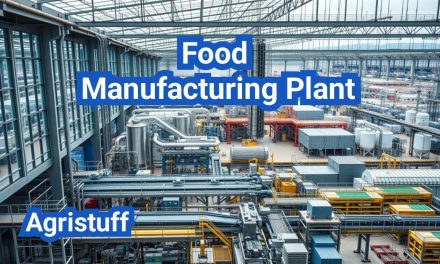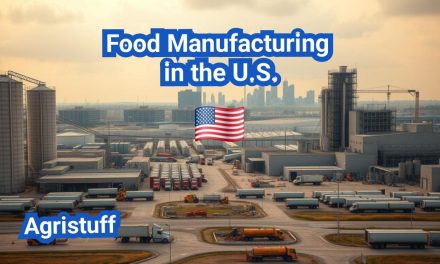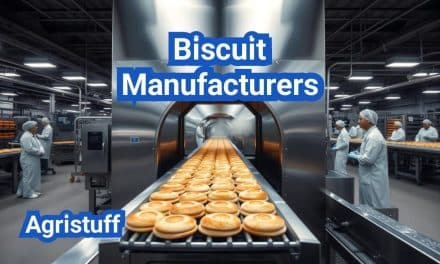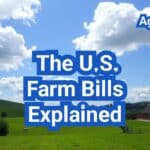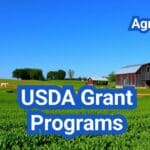U.S. food manufacturers are constantly seeking ways to improve their operations and comply with regulations. One effective strategy is to hire food consulting experts who can provide guidance on best practices and help navigate complex regulatory landscapes.
Experts in food safety consulting and FSMA compliance consulting can help manufacturers identify areas for improvement and implement necessary changes to ensure compliance and enhance overall efficiency.
Key Takeaways
- Expert guidance can help U.S. food manufacturers improve operations and comply with regulations.
- Food consulting services can provide valuable insights into best practices and regulatory compliance.
- Hiring a food manufacturing consultant can lead to improved efficiency and reduced risks.
- Food and beverage consulting firms offer a range of services to support manufacturers.
- Manufacturers can benefit from seeking expert advice on food safety consulting and compliance.
Understanding Food Consulting Services
Food manufacturers face numerous challenges, from regulatory compliance to quality control, making expert consulting invaluable. As the food industry continues to evolve, the demand for specialized consulting services has grown significantly.
What Is Food Consulting?
Food consulting involves providing expert advice to food manufacturers on various aspects of their operations, including food safety, quality control, regulatory compliance, and process optimization. Food consulting services are designed to help businesses navigate the complex landscape of food production, ensuring they meet the required standards and regulations.
A HACCP plan consultant, for instance, can help develop and implement a robust HACCP (Hazard Analysis and Critical Control Points) plan, which is crucial for identifying and controlling hazards in the food production process.
Types of Food Consulting Services Available
The range of food consulting services available is broad, catering to different needs within the food industry. Some of the key services include:
- Food safety consulting to ensure compliance with food safety regulations and standards.
- FDA labeling consulting to help manufacturers comply with labeling requirements.
- Allergen control programs to manage and mitigate allergen risks.
- GFSI (Global Food Safety Initiative) certification consulting to achieve internationally recognized food safety standards.
The Evolution of Food Consulting in the U.S. Market
The U.S. food consulting market has evolved significantly over the years, driven by changing consumer preferences, stricter regulations, and the need for enhanced food safety measures. The growing demand for safe and quality food products has led to an increased reliance on expert consultants who can provide guidance on compliance, quality control, and process optimization.
As the industry continues to evolve, the role of food consultants will remain crucial in helping manufacturers adapt to new challenges and regulations, ensuring the delivery of safe and high-quality food products to consumers.
Signs Your Food Manufacturing Business Needs Expert Consultation

The food manufacturing industry is fraught with challenges, from regulatory compliance to quality control issues, that may necessitate expert consultation. As the industry continues to evolve, manufacturers must stay ahead of the curve to ensure compliance, maintain quality, and drive innovation.
Regulatory Compliance Challenges
One of the most significant challenges food manufacturers face is navigating the complex landscape of regulatory compliance. With regulations constantly changing, staying compliant can be daunting. Expert consultation can provide guidance on meeting these regulatory requirements, ensuring that your business avoids costly fines and reputational damage.
Quality Control Issues
Quality control is paramount in food manufacturing. Issues with quality control can lead to product recalls, customer dissatisfaction, and damage to your brand’s reputation. A food manufacturing consultant can help implement robust quality control measures, ensuring that your products meet the highest standards.
Product Development Roadblocks
Innovation is key to staying competitive in the food manufacturing industry. However, product development can be fraught with challenges, from formulation to scaling production. Expert consultants can provide valuable insights and guidance on overcoming these roadblocks, helping to bring new products to market efficiently.
Scaling Production Difficulties
As your business grows, scaling production while maintaining quality and compliance can be challenging. A food manufacturing consultant can help you navigate these challenges, implementing processes that ensure consistency and efficiency as you scale.
| Challenge | Impact on Business | Benefit of Expert Consultation |
|---|---|---|
| Regulatory Compliance | Non-compliance can result in fines and reputational damage | Guidance on meeting regulatory requirements |
| Quality Control Issues | Product recalls and customer dissatisfaction | Implementation of robust quality control measures |
| Product Development Roadblocks | Delayed product launches and lost market opportunities | Expert guidance on formulation and scaling |
| Scaling Production Difficulties | Inefficiencies and potential quality control issues | Implementation of scalable processes |
By recognizing the signs that your food manufacturing business needs expert consultation, you can take proactive steps to address challenges and drive growth. Whether it’s navigating regulatory compliance, improving quality control, overcoming product development roadblocks, or scaling production, expert consultation can be the key to success.
Food Safety Consulting: Protecting Your Products and Consumers
The importance of food safety consulting cannot be overstated in today’s complex food manufacturing landscape. As the food industry continues to evolve, manufacturers face increasing pressure to ensure the safety and quality of their products. Food safety consulting plays a vital role in helping companies navigate the intricate web of regulations and best practices.
HACCP Plan Development and Implementation
A critical component of food safety consulting is the development and implementation of a robust HACCP (Hazard Analysis and Critical Control Points) plan. This systematic approach to identifying and controlling hazards is essential for preventing food safety issues. An effective HACCP plan consultant will work closely with manufacturers to understand their specific processes and develop a tailored plan that meets regulatory requirements.
Environmental Monitoring Programs
Environmental monitoring programs are another crucial aspect of food safety consulting. These programs involve regular testing and monitoring of the manufacturing environment to detect potential contaminants. By implementing a comprehensive environmental monitoring program, manufacturers can identify and address potential issues before they become major problems.
Allergen Control Strategies
Allergen control is a critical aspect of food safety, as even small amounts of an allergen can cause severe reactions in sensitive individuals. Allergen control strategies developed by food safety consultants include implementing strict cleaning protocols, segregating allergenic ingredients, and providing thorough training to production staff.
Listeria and Pathogen Control
Listeria and pathogen control are also key areas of focus for food safety consultants. This involves implementing measures to prevent the introduction and spread of pathogens in the manufacturing environment. Strategies may include enhanced cleaning and sanitizing protocols, regular testing, and the implementation of Listeria control programs.
By leveraging the expertise of food safety consultants, manufacturers can ensure the highest level of protection for their products and consumers. Whether it’s through HACCP plan development, environmental monitoring, or allergen control strategies, food safety consulting is an indispensable resource in the modern food industry.
Navigating Regulatory Compliance with Expert Guidance

Navigating the complex landscape of food regulatory compliance can be daunting for manufacturers, but expert guidance can provide a clear path forward. The food industry is subject to a myriad of regulations designed to ensure consumer safety and product quality.
FSMA Compliance Consulting
The Food Safety Modernization Act (FSMA) represents a significant shift in food safety regulation, focusing on prevention rather than response. FSMA compliance consulting can help manufacturers understand and implement the necessary controls to meet these new regulations. Expert consultants can provide guidance on developing and implementing effective food safety plans.
As stated by the FDA, “The FSMA rules are designed to prevent food safety problems before they occur.” This preventive approach requires manufacturers to be proactive in identifying and mitigating potential hazards in their production processes.
FDA Labeling Requirements
Compliance with FDA labeling requirements is another critical aspect of regulatory adherence. Labels must accurately reflect the contents of the product, including ingredient lists, nutritional information, and allergen warnings. An FDA labeling consultant can help manufacturers ensure their labels meet current regulations, reducing the risk of costly recalls or legal issues.
FSMA204 Traceability Rule Implementation
The FSMA204 traceability rule is a key component of the FSMA, aimed at improving the ability to track food products throughout the supply chain. Implementing this rule requires robust record-keeping and tracking systems. Expert guidance can help manufacturers develop and implement effective traceability protocols, ensuring compliance and enhancing overall supply chain resilience.
As noted by industry experts, “Effective traceability is crucial for quickly identifying and containing food safety issues, thereby protecting consumers and reducing economic losses.”
Preventive Controls Qualified Individual (PCQI) Training
The FSMA mandates that certain food facilities have a Preventive Controls Qualified Individual (PCQI) on staff. PCQI training is essential for ensuring that personnel understand the requirements for developing and implementing effective food safety plans. This training covers the identification of hazards, implementation of preventive controls, and ongoing monitoring and verification activities.
By investing in PCQI training, manufacturers can ensure they have the necessary expertise to comply with FSMA regulations and maintain a robust food safety program.
Global Food Safety Initiative (GFSI) Certification Support
The Global Food Safety Initiative (GFSI) certification has become a benchmark for food safety excellence, and manufacturers are seeking expert guidance to navigate this complex process. GFSI certification is not just a regulatory requirement; it’s a strategic business decision that can enhance a company’s reputation, improve operational efficiency, and open up new market opportunities.
SQF Certification Preparation
SQF (Safe Quality Food) certification is one of the most widely recognized GFSI-benchmarked standards. To achieve SQF certification, manufacturers must implement a comprehensive food safety plan that meets the SQF Code requirements. Expert consultants can guide companies through the preparation process, including:
- Conducting a gap analysis to identify areas for improvement
- Developing and implementing SQF-compliant food safety plans
- Preparing for certification audits
BRCGS Certification Process
The BRCGS (British Retail Consortium Global Standards) is another prominent GFSI-benchmarked standard. The BRCGS certification process involves a thorough audit of a company’s food safety and quality management systems. Consultants can assist with:
- Understanding BRCGS requirements and standards
- Implementing necessary changes to meet BRCGS criteria
- Managing the certification audit process
FSSC22000 Implementation
FSSC22000 is a GFSI-benchmarked certification scheme based on ISO 22000 and ISO/TS 22002-1. Implementing FSSC22000 requires a robust food safety management system. Expert consultants can help companies:
- Develop and implement FSSC22000-compliant food safety management systems
- Conduct internal audits to ensure compliance
- Achieve FSSC22000 certification
Comparing GFSI Certification Options
Choosing the right GFSI certification is crucial for food manufacturers. Each certification scheme has its strengths and is suited to different business needs. A comparison of SQF, BRCGS, and FSSC22000 certifications can help manufacturers make an informed decision based on factors such as:
| Certification Scheme | Key Features | Industry Recognition |
|---|---|---|
| SQF | Comprehensive food safety plan, supply chain transparency | Widely recognized in North America |
| BRCGS | Emphasis on quality management, security, and audit preparedness | Highly regarded in the UK and Europe |
| FSSC22000 | Based on ISO 22000, suitable for complex supply chains | Globally recognized, particularly in Europe and Asia |
By understanding the different GFSI certification options and their implementation processes, food manufacturers can make informed decisions that best suit their business needs and compliance requirements.
Process Authority Services for Food Manufacturers

Ensuring the safety and quality of food products is paramount, and process authority services are essential in achieving this goal. These services provide critical guidance on process validation, control implementation, and compliance with regulatory standards.
Thermal Process Validation
Thermal process validation is a crucial aspect of food safety, particularly for products that are heat-treated to ensure safety. A process authority can help manufacturers develop and validate thermal processes that meet regulatory requirements, such as those set by the FDA.
- Development of thermal process schedules
- Validation of process equipment
- Microbiological challenge studies
Process Control Implementation
Effective process control is vital for maintaining consistent product quality and safety. Process authority services can assist manufacturers in implementing robust process control measures, including:
- Identifying critical control points
- Establishing process monitoring procedures
- Developing corrective action protocols
Specialized Meat and Poultry HACCP
Meat and poultry processing requires specialized HACCP plans that address unique hazards associated with these products. Process authorities can help manufacturers develop and implement HACCP plans that comply with FSIS regulations.
By leveraging process authority services, food manufacturers can ensure compliance with regulatory requirements, improve product safety, and maintain high-quality products.
Crisis Management and Food Recall Planning

Crisis management and food recall planning are essential components of a comprehensive risk management strategy for food manufacturers. The ability to respond effectively in the event of a product recall can significantly impact a company’s reputation, financial stability, and compliance with regulatory requirements.
Developing Effective Recall Plans
An effective recall plan is critical for minimizing the impact of a product recall. This involves identifying potential risks, establishing clear communication channels, and defining roles and responsibilities within the organization. A well-structured recall plan should include procedures for:
- Identifying and isolating affected products
- Notifying regulatory authorities and consumers
- Retrieving and disposing of recalled products
- Communicating with stakeholders, including suppliers and distributors
As emphasized by industry experts, “A recall plan is not just about complying with regulations; it’s about protecting consumers and maintaining trust in your brand.”
“The key to a successful recall is having a plan that is both comprehensive and regularly tested.”
Mock Recall Exercises
Conducting mock recall exercises is a crucial step in ensuring that a recall plan is effective. These exercises help identify potential weaknesses in the plan, train personnel, and improve response times. Regular mock recalls can:
- Test the efficiency of communication channels
- Evaluate the effectiveness of product tracking systems
- Improve collaboration between different departments and external partners
Post-Recall Recovery Strategies
After a recall, it’s essential to have strategies in place for recovery. This includes assessing the cause of the recall, implementing corrective actions, and communicating with stakeholders about the steps being taken to prevent future incidents. Effective post-recall recovery involves:
- Conducting a thorough investigation into the cause of the recall
- Implementing changes to processes and procedures
- Rebuilding consumer trust through transparent communication
By focusing on crisis management and food recall planning, food manufacturers can better protect their consumers, their brand, and their bottom line. As the industry continues to evolve, staying informed about best practices in recall planning and crisis management is crucial.
Supplier Verification and Supply Chain Management

In the complex world of food production, supplier verification and supply chain management play a pivotal role in ensuring product safety and quality. As food manufacturers navigate the intricacies of global supply chains, they must implement robust verification processes to mitigate risks and comply with regulatory requirements.
Creating Robust Supplier Verification Programs
A well-designed supplier verification program is essential for ensuring that all ingredients and materials sourced from suppliers meet the required safety and quality standards. This involves several key steps:
- Conducting thorough risk assessments of potential suppliers
- Implementing a rigorous approval process for new suppliers
- Regularly auditing and evaluating the performance of existing suppliers
- Maintaining detailed records of all supplier interactions and verification activities
By following these steps, food manufacturers can significantly reduce the risk of contamination and quality issues in their supply chains.
Foreign Supplier Verification Program (FSVP) Compliance
For U.S.-based food manufacturers, compliance with the Foreign Supplier Verification Program (FSVP) is a critical aspect of supplier verification. The FSVP regulation requires importers to verify that their foreign suppliers are producing food in a manner that meets U.S. safety standards.
“The FSVP rule is a critical component of the FDA’s Food Safety Modernization Act (FSMA), aimed at ensuring the safety of imported food products.”
To comply with FSVP, importers must develop and implement a verification program that includes:
| Verification Activity | Description | Frequency |
|---|---|---|
| On-site Audits | Conducting audits at the foreign supplier’s facility | At least annually |
| Sampling and Testing | Testing products for contaminants or other hazards | As determined by risk assessment |
| Supplier Certification | Obtaining certification from a third-party auditor | At least annually |
Supply Chain Risk Assessment
Conducting a thorough supply chain risk assessment is crucial for identifying potential vulnerabilities and implementing effective mitigation strategies. This involves analyzing various factors, including:
- The country of origin for ingredients and materials
- The supplier’s production processes and controls
- Transportation and storage practices
- Previous history of quality or safety issues
By understanding these risks, food manufacturers can develop targeted strategies to strengthen their supply chains and ensure compliance with regulatory requirements.
Effective supplier verification and supply chain management are essential for maintaining the integrity of food products and ensuring consumer safety. By implementing robust verification programs, complying with regulations like FSVP, and conducting thorough risk assessments, food manufacturers can mitigate risks and build a more resilient supply chain.
The Business Case for Food Consulting

The decision to hire a food consultant can significantly impact a company’s bottom line and brand reputation. As the food industry continues to evolve, manufacturers are faced with increasing regulatory pressures, changing consumer demands, and the need for operational efficiency.
Cost-Benefit Analysis of Hiring Consultants
Conducting a thorough cost-benefit analysis is crucial when considering the hire of a food consultant. While there are upfront costs associated with consulting services, the potential benefits often far outweigh these expenses. Consultants can help identify areas of waste, optimize production processes, and implement cost-saving measures.
For instance, a food manufacturer might hire a consultant to streamline their production line, resulting in reduced energy consumption and lower waste disposal costs. The initial investment in consulting services can lead to significant long-term savings.
Risk Mitigation and Brand Protection
Food manufacturers face numerous risks, from product contamination to regulatory non-compliance. A food consultant can help mitigate these risks by implementing robust food safety protocols and ensuring compliance with relevant regulations.
By proactively managing risks, manufacturers can protect their brand reputation and avoid costly recalls or legal issues. In fact, a well-executed food safety plan can enhance consumer trust and loyalty, ultimately benefiting the company’s bottom line.
Operational Efficiency Improvements
Consultants can also drive operational efficiency improvements by analyzing current processes and identifying areas for optimization. This might involve implementing lean manufacturing principles, improving supply chain management, or enhancing quality control measures.
By streamlining operations, food manufacturers can increase productivity, reduce waste, and improve overall product quality. These improvements can lead to cost savings, enhanced customer satisfaction, and a stronger competitive position in the market.
In conclusion, the business case for food consulting is compelling. By conducting a thorough cost-benefit analysis, mitigating risks, protecting brand reputation, and driving operational efficiency improvements, food manufacturers can reap significant rewards from hiring expert consultants.
How to Select the Right Food Consulting Firm

The right food consulting firm can be a game-changer for manufacturers, but selecting it requires careful consideration of several key factors. When searching for a consultant, it’s essential to evaluate their credentials, industry expertise, and compatibility with your organization.
Evaluating Consultant Credentials and Experience
When assessing a food consulting firm’s credentials, look for relevant certifications such as HACCP or GFSI certification. Experience in your specific industry is also crucial, as it indicates familiarity with relevant regulations and challenges.
- Check for relevant certifications and training.
- Assess their experience in your industry.
- Review case studies or success stories.
Industry-Specific Expertise Considerations
A food consulting firm with industry-specific expertise can provide more targeted guidance. For instance, a firm experienced in meat and poultry processing will be more effective in addressing specific HACCP requirements for those products.
Consider the following when evaluating industry expertise:
- Specific products or categories they have experience with.
- Their knowledge of relevant regulations and standards.
- Their ability to provide case studies or references from similar businesses.
Client References and Case Studies
Reviewing client references and case studies can provide insights into a consulting firm’s effectiveness and compatibility with your needs. Look for firms that can demonstrate tangible results and have experience with businesses similar to yours.
When reviewing case studies, consider:
- The challenges faced by their clients.
- The solutions they implemented.
- The outcomes and results achieved.
Compatibility with Your Organization
Ensuring compatibility between your organization and the consulting firm is vital for a successful partnership. This includes aligning values, communication styles, and project goals.
To assess compatibility:
- Evaluate their communication style and responsiveness.
- Consider their approach to problem-solving and project management.
- Assess their willingness to understand and adapt to your specific needs.
By carefully evaluating these factors, food manufacturers can select a consulting firm that not only meets their immediate needs but also contributes to long-term success and compliance.
Food and Beverage Product Development Consulting
As consumer preferences continue to evolve, food and beverage companies are turning to product development consulting to stay ahead of the curve. Product development is a complex process that involves several critical stages, from initial concept to commercial production.
Formulation and Recipe Development
The formulation and recipe development stage is where the foundation of a new product is laid. This involves creating a product that not only tastes good but also meets regulatory requirements and consumer expectations. Expert consultants can help manufacturers develop formulations that are both innovative and compliant with food safety standards.
Shelf-Life Testing and Extension
Shelf-life testing is crucial for determining how long a product remains safe and retains its quality. Consultants can assist in designing and implementing shelf-life testing protocols to ensure products meet or exceed industry standards. This process can help extend the shelf life of products, reducing waste and improving customer satisfaction.
Packaging Innovation and Compliance
Packaging plays a vital role in product development, affecting not only the product’s shelf life but also its marketability and compliance with regulations. Innovative packaging solutions can enhance product visibility on store shelves while ensuring compliance with labeling and safety regulations. Consultants can guide manufacturers in selecting the most appropriate packaging options.
Scaling from Concept to Commercial Production
Scaling a product from concept to commercial production involves several challenges, including maintaining product consistency, managing costs, and ensuring regulatory compliance. Consulting experts can provide valuable insights and strategies for overcoming these challenges, ensuring a smooth transition to large-scale production.
| Stage | Key Activities | Consulting Benefits |
|---|---|---|
| Formulation | Recipe development, taste testing | Innovative and compliant formulations |
| Shelf-Life Testing | Testing protocols, quality assurance | Extended shelf life, reduced waste |
| Packaging Innovation | Design, material selection, compliance | Enhanced product visibility, regulatory compliance |
| Scaling Production | Process optimization, cost management | Smooth transition to commercial production |
Internal Auditing and Continuous Improvement

Internal auditing is a cornerstone of quality management systems in food production, enabling companies to identify areas for improvement and ensure compliance with regulatory standards.
By implementing robust internal audit programs, food manufacturers can proactively address potential issues before they become major problems. This not only enhances operational efficiency but also protects the company’s reputation and bottom line.
Developing Internal Audit Programs
Developing an effective internal audit program requires careful planning and a thorough understanding of the organization’s quality management system. This involves:
- Identifying audit criteria and scope
- Selecting qualified audit personnel
- Establishing a schedule for audits
- Defining procedures for reporting and addressing findings
Training Internal Auditors
Training internal auditors is critical to the success of any audit program. Auditors should be knowledgeable about the company’s quality management system, as well as relevant regulatory requirements. Effective training enables auditors to identify non-conformities and areas for improvement accurately.
Implementing Corrective Actions
Once audit findings are reported, implementing corrective actions is essential to address identified issues. This involves:
| Step | Description | Responsibility |
|---|---|---|
| 1 | Identify root cause | Audit Team |
| 2 | Develop corrective action plan | Department Heads |
| 3 | Implement corrective actions | Designated Teams |
| 4 | Verify effectiveness | Audit Team |
Measuring Audit Effectiveness
To ensure the ongoing effectiveness of internal audits, it’s crucial to measure their impact. This can be done by tracking key performance indicators (KPIs) such as:
- Number of non-conformities identified
- Timeliness of corrective actions
- Improvement in compliance ratings
By focusing on internal auditing and continuous improvement, food manufacturers can enhance their quality management systems, reduce risks, and improve overall efficiency.
Working Effectively with Your Food Consultant

Effective collaboration with a food consultant is crucial for achieving desired outcomes in food manufacturing. To ensure a successful partnership, it’s essential to understand the key elements that drive a productive working relationship.
Setting Clear Expectations and Deliverables
Establishing clear expectations is the foundation of a successful food consulting engagement. This involves defining the scope of work, setting realistic timelines, and identifying key performance indicators (KPIs). By doing so, both parties can work towards common goals, ensuring that the consulting project meets its intended objectives.
To set clear expectations, manufacturers should:
- Clearly define the project’s scope and objectives
- Establish a realistic timeline and milestones
- Identify and agree upon KPIs to measure success
Communication Best Practices
Effective communication is vital when working with a food consultant. Regular updates, open dialogue, and transparent communication channels help prevent misunderstandings and ensure that the project stays on track. Manufacturers should designate a primary point of contact to facilitate seamless communication.
Best practices for communication include:
- Regularly scheduled meetings or updates
- Clear and concise language in all communications
- Prompt response to consultant inquiries
Knowledge Transfer Strategies
A crucial aspect of working with a food consultant is ensuring that the knowledge and expertise gained during the engagement are transferred effectively to the manufacturer’s team. This can be achieved through training sessions, documentation, and on-site support.
Effective knowledge transfer strategies include:
- Comprehensive training programs for staff
- Detailed documentation of processes and procedures
- Ongoing support to address questions or concerns
Measuring Consulting Success
To determine the success of a food consulting engagement, manufacturers must establish a framework for measuring outcomes. This involves tracking KPIs, conducting regular assessments, and making adjustments as needed.
Key considerations for measuring success include:
- Regular monitoring of KPIs
- Periodic assessment of progress towards objectives
- Adjustments to the consulting plan as necessary
Maximizing the Value of Food Consulting Partnerships
Effective food consulting partnerships can be a game-changer for U.S. food manufacturers. By understanding the signs that indicate the need for expert consultation, navigating regulatory compliance, and leveraging process authority services, businesses can mitigate risks and improve operational efficiency.
To maximize the value of food consulting partnerships, it’s essential to select the right consulting firm, set clear expectations, and establish effective communication channels. This enables manufacturers to tap into the consultants’ expertise, drive continuous improvement, and ultimately enhance their bottom line.
By implementing the strategies outlined in this article, food manufacturers can optimize their food consulting partnerships and achieve significant benefits, including improved compliance, reduced risk, and increased efficiency. As the food industry continues to evolve, maximizing the value of food consulting partnerships will remain crucial for businesses seeking to stay competitive and maintain consumer trust.
FAQ
What is food consulting, and how can it benefit my business?
Food consulting involves expert guidance on various aspects of the food industry, including food safety, regulatory compliance, product development, and operational efficiency. By hiring a food consultant, businesses can improve their processes, mitigate risks, and enhance their overall competitiveness.
How do I know if my food manufacturing business needs expert consultation?
Signs that your business may need expert consultation include regulatory compliance challenges, quality control issues, product development roadblocks, and scaling production difficulties. If you’re facing any of these challenges, consider seeking the help of a food consultant.
What services do food consultants typically offer?
Food consultants offer a range of services, including food safety consulting, regulatory compliance guidance, product development support, process authority services, crisis management, and supplier verification. They can also provide guidance on GFSI certification, internal auditing, and continuous improvement.
How can food safety consulting protect my products and consumers?
Food safety consulting can help protect your products and consumers by developing and implementing effective HACCP plans, environmental monitoring programs, and allergen control strategies. This can help prevent contamination and ensure compliance with regulatory requirements.
What is the importance of GFSI certification, and how can a consultant help?
GFSI certification is a globally recognized standard for food safety management. A consultant can help you navigate the certification process, including SQF, BRCGS, and FSSC22000, and ensure that your business meets the required standards.
How can a food consultant help with product development and formulation?
A food consultant can provide guidance on formulation, recipe development, shelf-life testing, and packaging innovation. They can also help you scale from concept to commercial production, ensuring that your product meets consumer demands and regulatory requirements.
What are the benefits of working with a food consultant?
Working with a food consultant can bring numerous benefits, including improved operational efficiency, enhanced risk mitigation, and better brand protection. They can also provide valuable insights and expertise to help you stay competitive in the market.
How do I choose the right food consulting firm for my business?
When selecting a food consulting firm, consider their credentials, industry-specific expertise, client references, and case studies. Ensure that they have a good understanding of your business needs and can provide tailored guidance to meet your objectives.
What are the key elements of a successful food consulting partnership?
A successful food consulting partnership involves setting clear expectations, effective communication, knowledge transfer, and measuring consulting success. By establishing a strong partnership, you can maximize the value of the consulting services and achieve your business goals.
How can I ensure that I’m getting the most out of my food consulting partnership?
To get the most out of your food consulting partnership, ensure that you’re working closely with your consultant, providing them with the necessary information, and implementing their recommendations. Regularly review progress and adjust your strategy as needed to achieve your objectives.
Conclusion of: Food Consulting
Why food consulting matters for U.S. plants
Food consulting helps manufacturers scale safely, meet regulations, and avoid costly mistakes by translating complex food safety rules into day-to-day practices. The business case for food consulting is strong: preventing foodborne illness incidents and recalls protects consumers and brands while unlocking retail and foodservice opportunities in the U.S. market. CDC: U.S. burden of foodborne illness
What food consulting actually covers
At its core, food consulting builds or upgrades your food safety plan—hazard analysis, risk-based preventive controls, monitoring, corrections, verification, and records—so your program aligns with current regulations. Effective food consulting turns high-level policy into specific SOPs, training modules, and audit-ready documentation. eCFR: 21 CFR Part 117 (CGMP & Preventive Controls)
When to hire food consulting
Smart moments to bring in food consulting include commissioning a new line, launching a new product, shifting suppliers, entering retailers that require certification, or recovering from a regulatory or customer audit. Food consulting is also valuable when inherited documentation is outdated and you need a modern, risk-based system. FDA draft guidance: Hazard analysis & preventive controls
How food consulting navigates FDA vs. FSIS
The first scoping step in food consulting is mapping your products to the correct regulator: most human foods fall under FDA’s 21 CFR 117, while meat, poultry, and certain egg products fall under FSIS with mandatory HACCP. Food consulting teams align requirements across plants so documentation and validation match the right rule set. FSIS: 9 CFR Part 417 (HACCP)
Food consulting for importers: the FSVP rule
If you import ingredients or finished foods, food consulting helps design a Foreign Supplier Verification Program (FSVP)—supplier evaluations, verification activities, and records—to show imported foods meet U.S. standards. Food consulting prevents gaps when multiple suppliers and products are involved. FDA: FSVP key requirements
Customer requirements & GFSI: where food consulting pays off
Many U.S. customers require third-party certification under a GFSI-recognized scheme. Food consulting connects customer expectations to your regulatory baseline so you build once and comply many times, avoiding duplicate documentation. GFSI: overview & recognition
Picking SQF with food consulting
For plants serving North American retailers, food consulting often recommends SQF due to clear codes and auditor expectations. Food consulting scopes an SQF project around gap assessment, document stack creation, internal audits, and audit rehearsal so your certification proceeds predictably. SQF: The SQF Code
Picking BRCGS with food consulting
If your customer mix is global or leans European, food consulting may steer you toward BRCGS Food Safety (Issue 9), emphasizing risk-based programs, site standards, and culture. Food consulting helps interpret clauses and prepare for the two-stage audit flow. BRCGS: Food Safety Standard
Picking FSSC 22000 with food consulting
ISO-driven facilities benefit when food consulting aligns FSSC 22000 with existing ISO systems, selecting appropriate PRPs and integrating management review and internal audit cycles. Food consulting reduces duplication across quality, environment, and safety management systems. FSSC 22000: Scheme overview
Labeling & claims: de-risking through food consulting
Mislabeling is a top recall driver, so food consulting validates naming, ingredient statements, Nutrition Facts, and claims substantiation against current guidance. Food consulting also establishes artwork review workflows so compliance is built into your process. FDA: Food Labeling Guide
Special case: meat & poultry labeling via food consulting
For meat and poultry, food consulting coordinates with FSIS policies for approvals and special statements or claims, building strong support files that mirror your HACCP decisions. Food consulting shortens review cycles and reduces rework. FSIS: Basics of labeling
Allergen control: day-one wins from food consulting
Allergen cross-contact is a leading cause of recalls; food consulting designs allergen control programs, validated changeovers, and label checks that reflect FDA expectations for the nine major allergens (including sesame). Food consulting ensures controls translate into verifiable records. FDA: Food allergens
Environmental monitoring & Listeria: programs built by food consulting
For RTE products, food consulting builds an environmental monitoring program tailored to your risk profile—zoning, site maps, swab schedules, and corrective actions—aligned to FDA’s Listeria guidance. Food consulting keeps trending and escalation rules crisp and auditable. FDA draft guidance: Listeria control in RTE foods
Traceability (FSMA 204): food consulting prepares you early
FSMA’s Food Traceability rule expands records for certain foods, and food consulting helps map your critical tracking events and key data elements across suppliers and lines. Food consulting also evaluates software options and training so you are implementation-ready as compliance timelines evolve. FDA: Proposed extension of FSMA 204 compliance date
Recall readiness: what food consulting delivers
Every facility with a hazard requiring a preventive control needs a written recall plan; food consulting translates this into named roles, contact trees, effectiveness checks, and mock recalls that create real muscle memory. Food consulting upgrades plans from templates to action. eCFR: 21 CFR §117.139 (Recall plan)
Supplier programs: closing upstream risk with food consulting
When hazards are controlled before receipt, food consulting designs a supply-chain program—approved supplier lists, risk-based verification (audits, sampling), and records—scaled to your ingredients and history. Food consulting keeps your verification activities proportional and defensible. eCFR: 21 CFR Part 117 Subpart G (Supply-chain program)
Process authority & validation: when food consulting is essential
For thermally processed shelf-stable foods (e.g., low-acid canned foods), food consulting coordinates process authority studies, validation, monitoring, and filings to meet specific regulatory expectations. Food consulting ensures data integrity across trials and production. eCFR: 21 CFR Part 113 (LACF)
University partners that complement food consulting
University centers can extend your bench strength; food consulting often collaborates with the Cornell Food Venture Center for process authority work, shelf-life, and compliance support—especially for acidified and low-acid foods. Food consulting coordinates submissions and data packages. Cornell Food Venture Center (CFVC)
PCQI coverage & training through food consulting
A Preventive Controls Qualified Individual must develop and manage key elements of your plan; food consulting confirms that PCQI requirements are met and documented, and can help your team complete recognized training. Food consulting leaves you with capability you can sustain. eCFR: 21 CFR §117.180 (PCQI requirements)
Public programs that amplify food consulting
For small and mid-sized manufacturers, the NIST MEP National Network provides services and training that pair well with private food consulting projects—helpful when budgets are tight but certification or compliance timelines loom. Food consulting plus MEP can be a force multiplier. NIST MEP: Food industry services
Scope & deliverables to expect from food consulting
A well-scoped food consulting engagement includes a gap assessment, prioritized roadmap, SOPs and work instructions, forms and logs, training plan, internal audit program, and a certification or regulatory rehearsal. Food consulting ties every deliverable back to your hazard analysis and preventive controls. FDA draft guidance: From hazard analysis to controls
How auditors evaluate food consulting outcomes
Auditors look for internal consistency: a hazard analysis that justifies controls, controls that generate records, and records that prove effectiveness. Food consulting aligns policies, floor practices, and KPIs so your system reads coherently from top to bottom. SQF: Code & audit resources
A practical checklist to select a food consulting partner
Use this quick rubric: industry and process experience, success with your target scheme (SQF/BRCGS/FSSC) or regulator (FDA/FSIS), sample deliverables, training credentials (e.g., PCQI/Lead Instructor), references with measurable outcomes, and a clear RACI and timeline. Food consulting should fit your culture and pace. GFSI: Recognized schemes list
Budgeting: right-sizing food consulting for ROI
The best ROI comes when food consulting focuses on risk hot-spots—labeling, allergens, RTE environmental control, supplier verification, and recall readiness—while building simple, maintainable systems. Food consulting reduces future non-conformances, chargebacks, and downtime. FDA: Allergens (high-risk area)
Integrating digital tools through food consulting
Many teams adopt digital logs, training trackers, and CAPA workflows during food consulting. The goal is traceable records that auditors trust and operators find easy—food consulting should recommend tools only if they simplify execution and trend analysis. FDA: Documentation expectations
Change management: sustaining gains after food consulting
Systems decay without ownership, so food consulting embeds roles, review cadences, and internal audits to sustain performance after the engagement ends. Food consulting should leave behind a living system—not a binder on a shelf. NIST MEP: Training & continuous improvement
Final thought
The simplest way to think about food consulting is this: invest now to buy down risk and build capabilities that your team can actually run tomorrow. Food consulting that maps tightly to your hazards, your customers’ scheme, and your plant realities nearly always costs less than a failed audit or a recall. eCFR: 21 CFR Part 117 (foundation for U.S. food safety plans)
Sources & References
- eCFR: 21 CFR Part 117
- FSIS: 9 CFR Part 417 (HACCP)
- FDA: FSVP key requirements
- GFSI: Overview
- BRCGS: Food Safety Standard
- FSSC 22000: Scheme overview
- FDA: Food Labeling Guide
- FSIS: Basics of labeling
- FDA: Food Allergies
- FDA draft guidance: Listeria in RTE foods
- eCFR: 21 CFR §117.139 (Recall plan)
- eCFR: 21 CFR Part 117 Subpart G
- eCFR: 21 CFR Part 113
- Cornell Food Venture Center
- eCFR: 21 CFR §117.180 (PCQI)
- NIST MEP: Food industry services
- FDA: Hazard analysis & preventive controls (draft)


